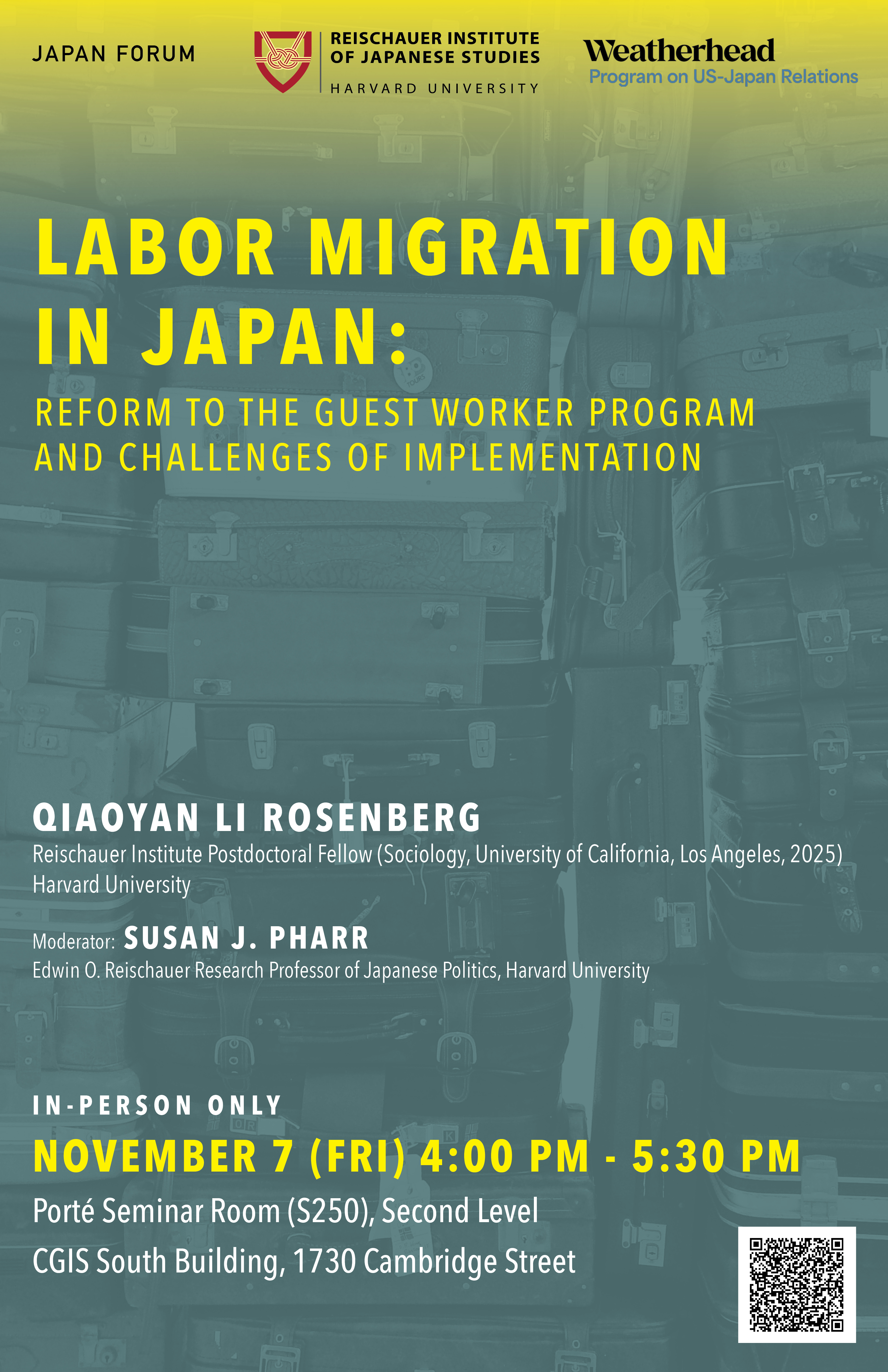Labor Migration in Japan: Reform to the Guest Worker Program and Challenges of Implementation
Japan has been described as a negative case in comparative immigration studies due to its restrictive immigration policies. However, in recent years, to address intensified labor shortages brought by population decline, Japan has joined other East Asian states to reform labor migration policies to attract and retain migrant workers. Building upon its guest work program—the Technical Intern Training Program (TITP), Japan established a new program called the Specified Skilled Worker (SSW) in 2018. TITP workers may transition to status under the SSW, obtaining the freedom to change employers and other rights. Drawing on data from a course of 14-month fieldwork in Japan, I will talk about the implementation of the SSW on the ground. I will unpack the processes of workers’ visa status transition and changing employers across industries (such as from agriculture to the food industry), and I will show how the constraints on workers’ mobility persist through the TITP and the SSW, as well as workers’ precarity. Reflecting on the empirical findings and official data, I will be discussing how the Japanese case illustrates major challenges to liberalizing guest worker regimes.
Reischauer Institute Japan Forum co-sponsored by the Program on US-Japan Relations
